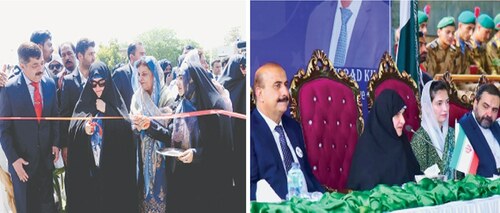ISLAMABAD: The ministry of religious affairs has decided to formulate a new law to end controversies affiliated with Ruet-i-Hilal Committee and streamline its affairs.
However, the most serious challenge faced by the ministry in this regard is to get a nod from the provinces because the subject of ‘religion’ has been devolved after the 18th amendment.
“There has to be a two-pronged strategy: we are preparing a draft law and at the same time the copy of a resolution to be forwarded to provinces seeking their consent has been sent to the ministry of law for vetting,” said Sardar Mohammad Yousuf, the minister for religious affairs.
“The new law will clearly define the number of members in the committee, the criteria for becoming a member and the duration of their membership.”
However, in the first phase, the religious affairs ministry has forwarded the draft of ‘resolutions’ to the law ministry which related to authorisation by the provinces that the federal government can make laws related to the Ruet-i-Hilal Committee.
Earlier, there were two contrary views in the ministry over the role of the committee. One point of view was that the subject - religion - had been devolved to the provinces and the Central Ruet-i-Hilal Committee stood invalid. This issue was also raised by Mufti Popalzai of Peshawar in Ramazan 2015.
The other point of view was that the role of Ruet-i-Hilal Committee was related to calendar and not directly to the religion.
Some senior officials believed that calendar and time were national subjects and the role of the committee was to determine the dates of the Islamic calendar. But eventually it was decided that a legal course should be taken to avoid any controversy in the future.
“The federal government can make laws on any devolved subject by obtaining resolutions from the provincial assemblies,” said Noor Zaman, a spokesman for the ministry of religious affairs.
“As the resolution is likely to be vetted by the law ministry in near future the ministry of religious affairs has also started drafting a new law related to the Ruet-i-Hilal Committee,” he added.
Currently, the main function of the committee is to determine the sighting of the new moon for the months of Ramazan, Shawal, Muharram and Zil Haj.
As the country has a tradition of controversies related to the sighting of Ramazan or Shawal (Eidul Fitr) moon, the Central Ruet-i-Hilal Committee was established in 1974 under a resolution passed by the National Assembly.
However, since then none of the successive governments bothered to formulate rules and regulations related to the functioning of the committee.
Besides, the 1974 resolution permitted the Central Ruet-i-Hilal Committee to have nine members, including a woman. But at present there are over two dozen members as their number continued rising through executive orders issued by the successive ministers of religious affairs.
Published in Dawn, August 12th, 2016













































